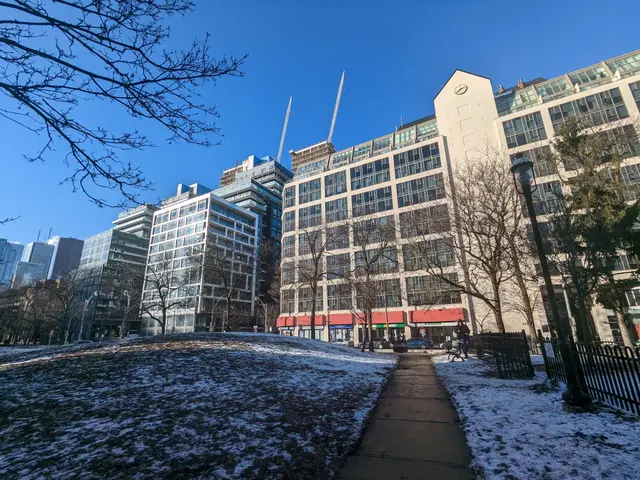Persisting Dispute Between Israel and Multiple Western Countries Remains Unresolved
In the aftermath of the fatal shooting of two Israeli diplomats in Washington D.C., the friction between Israel and its key Western allies intensifies over Israel's latest offensive in Gaza. Critics, including those from the United Kingdom, France, and Canada, claim that Israel's aggressive response to Hamas's actions on October 7, 2023, is disproportionate.
The international community expresses understanding for Israel's legal right to defend itself, but harbors concerns regarding the scope and impact of its actions. Over 53,000 casualties, as reported by the Hamas-led health authority in Gaza, have raised eyebrows among Western leaders, who express doubt over Israel Defense Forces' (IDF) claims that each attack is meticulously assessed for proportionality.
IDF maintains that it determines the necessity, feasibility, and steps taken to minimise civilian casualties before launching each attack. However, evidence supporting these assertions remains elusive, leading critics to suspect that Israel's calculations may be overly broad, resulting in a lack of restrictions on its military actions.
Another point of controversy revolves around Israel's blockade on food and medical supplies to Gaza. The United Nations (UN) estimates that approximately 500,000 Gazans are on the brink of starvation as a result of the ongoing blockade. The EU and Western nations have intensified their pressure on Israel to lift the blockade and allow humanitarian aid to reach the people in need.
Israel has reportedly agreed to allow 20% of the daily humanitarian needs into Gaza. The IDF is also set to initiate a new food distribution program in Gaza, run by the Gaza Humanitarian Organisation (GHO), an organization created by the Israeli government. The GHO will be managed by private companies contracted by the Israeli government to distribute food at four centers in Gaza. IDF will provide security at these centers.
The UN, however, has rejected cooperation with this policy, citing concerns over its effectiveness and potential for "ethnic cleansing" by moving the Gazan population from the north of the strip to a corner of the southeast. Instead, they argue that Israeli policy seeks to force starving people to move towards available food supplies, a devastating impact on civilian populations.
This ongoing standoff threatens to further destabilize the region, as Israel grapples with international criticism, the UN, and even internal factions within its government. Over two million people are trapped within the conflict zone, bracing for the next phase of this 20-month-long war.
- The general news about ongoing war-and-conflicts between Israel and Palestine, specifically the latest offensive in Gaza, has become a significant focus of politics, with criticism from key Western allies over Israel's use of force deemed disproportionate.
- Policy-and-legislation regarding Israel's blockade on food and medical supplies to Gaza have sparked controversy, with the United Nations (UN) voicing concerns that the blockade risks pushing 500,000 Gazans to the brink of starvation.
- Amidst concerns over civilian casualties during war, the Israeli Defense Forces (IDF) have been under scrutiny for their actions in Gaza, with critics raising doubts over the IDF's claims that each attack is meticulously assessed for proportionality and minimizing civilian harm.
- In the face of international criticism, car-accidents, and crime-and-justice issues seem to have taken a backseat within Israel's political agenda, as the ongoing war and ensuing conflicts continue to occupy the nation's attention and resources.








